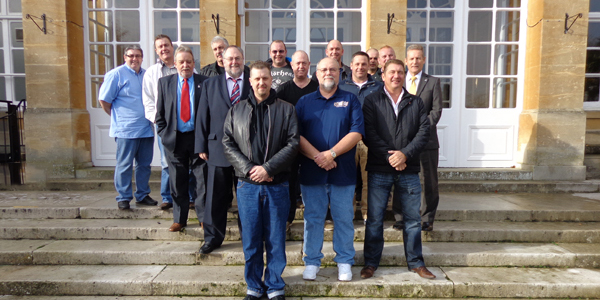
Working with Unions to Get Buy-In for GPS Fleet Tracking
Working with unions to implement GPS fleet tracking is challenging, especially for government fleets. Unions often argue that GPS technology is a morale-killing Big Brother that will endlessly track employees’ every action.
They believe it’s an intrusion of employee privacy. Some also believe it undermines the public’s trust in them – if their bosses don’t trust them, why should the public? There are also concerns that GPS tracking will only be used against employees.
Some have also tried to make a financial case: that their service area isn’t large enough to warrant GPS tracking.
If you’re running into these obstacles, we have advice that can change the discussion.
Getting to the Positive: Working with Unions
Here are some discussion points that can present a positive case for GPS tracking in government fleets.
Rewards Rather than Reprimands
The best way to implement tracking is to notify employees beforehand. Explain some of the benefits you see below. Don’t make their first interaction with the technology a reprimand.
Commercial fleets succeed with this approach. It’s a perfect example of how to work with unions, as well.
You can reward drivers who show improvement in MPG, for example. There are many other possibilities depending on what factors you decide to track.

Protection and Support for Employees
What happens when a citizen complains that their trash wasn’t picked up, a street wasn’t plowed, or that a city vehicle was speeding?
Without GPS tracking, you have no evidence to back drivers and refute claims.
GPS tracking can show that a city vehicle was in the right place to do the job. In the case of a snowplow, it can even show that the plow was down and operating. GPS tracking can even identify vehicles accused of speeding to prove their exact speed – or to show they weren’t even in that location.
This allows fleet managers to protect their drivers and technicians from fraudulent claims and misunderstandings.
Use the Right Vehicle for the Right Job
Fleets often have a wide variety of needs, with vehicle types that are specialized for the types of jobs they can do. GPS software helps dispatchers identify vehicle types, which ensures that they assign them to appropriate jobs.
Also, GPS solutions can track data about what equipment is included on a vehicle. That’s helpful for making sure the vehicles they dispatch have everything they need to handle a job. This lets employees get the most out of their time.
Reduce Downtime on Vehicles
Unplanned vehicle downtime makes fleets less profitable. And improving communication is a sure way to minimize the odds of unscheduled repairs.
GPS solutions streamline communications by collecting vehicle data and relaying it to maintenance departments automatically. This is far faster and more accurate than using paper. Your maintenance staff can check on engine status, run time, error codes and more. This gives them the insight to schedule preventative maintenance before it becomes a more-expensive and time-consuming repair. Save Time and Frustration for Drivers
No driver likes being stuck in traffic or getting sent across town for a job when someone else was closer and available to do the same job. GPS can help dispatchers pick the best vehicle to respond to a situation, saving your drivers from unnecessary windshield time and this helps departments more efficiently allocate resources.
Keep Employees Safe
Everyone likes to believe they’re a perfect driver, but each of us has room for improvement.
GPS tracking can identify unsafe habits, from speeding to hard stops to fast acceleration. Being aware of these habits encourages your drivers to be safer. That also makes them look better to the public they serve.
And there’s more to safety than just driving habits: GPS tracking can also be used to create custom panic buttons. For example, a utility line worker was stuck in a bucket when his truck caught on fire. His employer had worked with GPS Insight to create a custom panic button that wound up saving his life.
That means working with unions to implement GPS tracking can save lives.
Bottom Line on Working with Unions
If your organization uses GPS technology the right way, you’ll call out the performance of your best employees. Then, you’ll work with other employees to model those positive examples. That’s a better approach because employee turnover has a hard cost in dollars and time.
We hope this information is helpful when working with unions to get buy-in on GPS tracking.





